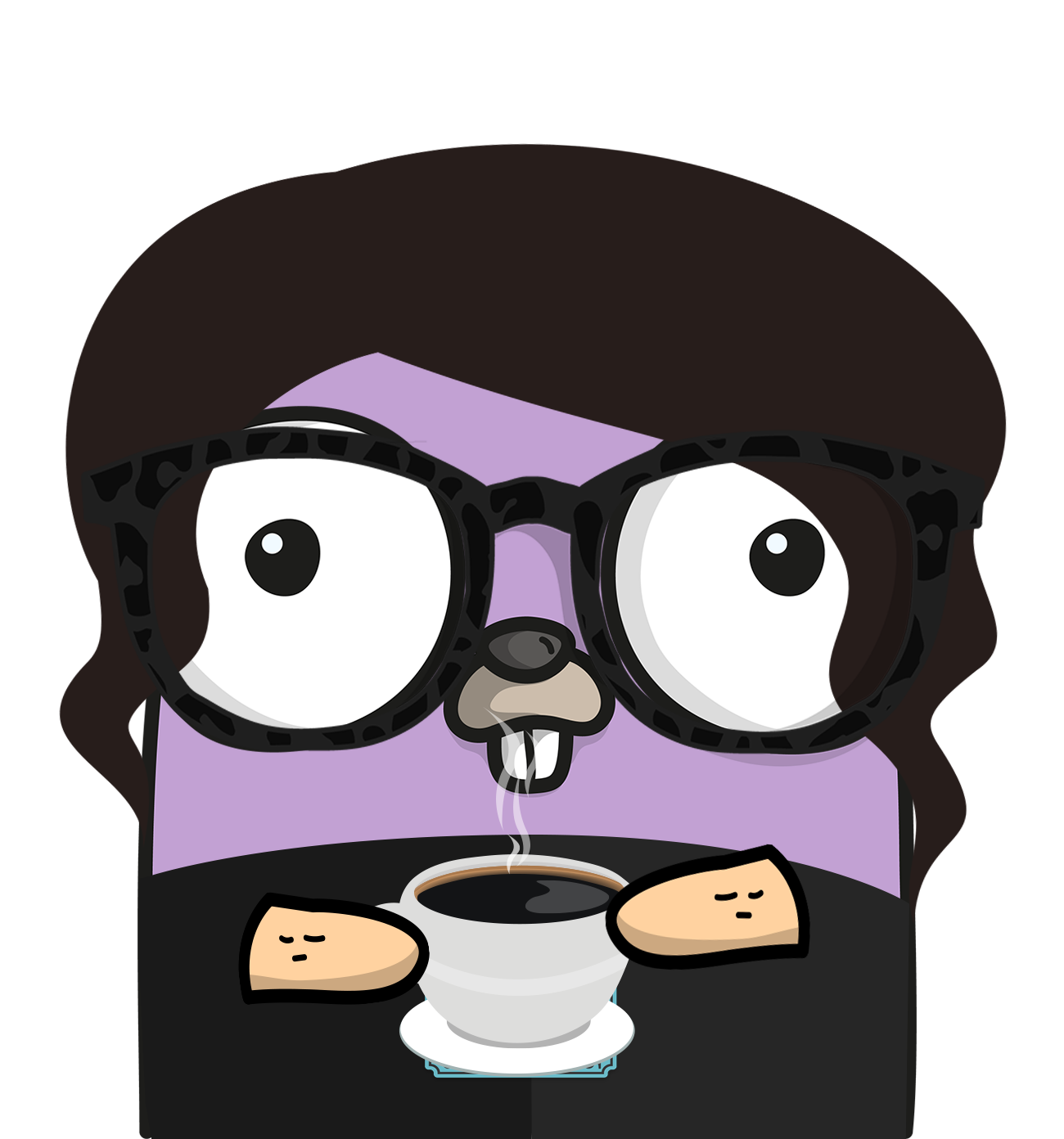Desenvolvendo Web APIs
em GoBianca Rosa

- Python / Go / Lua / JS
- PythOnRio / Gophers RJ
- Pyladies / Rails Girls RJ / WWG RJ
- Sobre frameworks
- Escrita de código: padrões e clean code
- Estrutura de pastas
- Testes
- Gerenciando dependências
- Dockerfile
- Erros comuns
- Quando usar Go
Devo ou não usar um framework web em Go?
A standard library do Go é bastante poderosa.
Portanto, não utilizar um framework é perfeitamente aceitável.
#leitura: Why I Don’t Use Go Web Frameworks
#disclaimer: eu gosto de utilizar gin / echo.
package main
import (
"fmt"
"io"
"net/http"
)
func hello(w http.ResponseWriter, r *http.Request) {
io.WriteString(w, "Hello, TDC!")
}
func main() {
http.HandleFunc("/", hello)
fmt.Println("Serving http...")
http.ListenAndServe(":8000", nil)
}package main
import (
"encoding/json"
"fmt"
"net/http"
)
type Greeting struct {
Message string `json:"msg"`
}
func hello(w http.ResponseWriter, r *http.Request) {
person := Greeting{Message: "Hello"}
jsonPerson, err := json.Marshal(person)
if err != nil {
http.Error(w, err.Error(), http.StatusInternalServerError)
return
}
w.Header().Set("Content-Type", "application/json")
w.Write(jsonPerson)
}
func main() {
http.HandleFunc("/", hello)
fmt.Println("Serving http...")
http.ListenAndServe(":8000", nil)
}Frameworks
- Echo
- Gin
- Martini
- Beego
- Revel
- Traffic
- ... e outros que eu não conheço
Ou ainda...
- 1. Você é uma pessoa livre.
- 2. Apenas baseie sua decisão em bons argumentos.
- 3. Muito do que está escrito na Internet são opiniões.
package main
import (
"os"
"github.com/labstack/echo"
"github.com/labstack/echo/middleware"
log "github.com/sirupsen/logrus"
"github.com/biancarosa/goasync/routes"
)
func main() {
e := echo.New()
// Setup Logrus
log.SetOutput(os.Stdout)
log.SetLevel(log.DebugLevel)
// Middleware
e.Use(middleware.Logger())
e.Use(middleware.Recover())
// Routes
e.GET("/", routes.HealthCheck)
e.POST("/async", routes.ExecuteTask)
e.GET("/tasks/:uuid", routes.RetrieveTask)
e.Logger.Fatal(e.Start(":1323"))
}package routes
import (
"net/http"
"os"
"github.com/labstack/echo"
log "github.com/sirupsen/logrus"
)
func init() {
// Setup Logrus
log.SetOutput(os.Stdout)
log.SetLevel(log.DebugLevel)
}
//HealthCheck is the route that prints a sucessful message when the application is fine.
func HealthCheck(c echo.Context) error {
return c.String(http.StatusOK, "I seem to be perfectly fine.")
}Escreva bons códigos
#leitura: Good Code vs Bad Code in Golang
Go wiki
Use Interfaces
Estrutura de pastas
* totalmente minha opinião
- routes
- services
- models
- configuration
Testes de Unidade
Se o código é dificil de testar, então provavelmente merece ser reescrito.
"SÓ QUERIA UM MONKEY PATCH IGUAL AO DO PYTHON"
Rosa, Bianca, 3am, sábado

Testes de Integração
Separação de testes unitários e de integração através de build tags.
// +build integrationTestes de Carga
Dependências
Dockerfile
FROM golang:latest AS build
WORKDIR $GOPATH/{your-repo}
COPY . ./
RUN go get github.com/tools/godep
RUN godep get
RUN CGO_ENABLED=0 GOOS=linux go build -a -installsuffix nocgo -o /app .
FROM scratch
COPY --from=build /app ./
ENTRYPOINT ["./app"]Erros comuns
//Task is the structure that contains all relevant information for a task
type Task struct {
Method string
URL string
name string
UUID uuid.UUID
}{
"Method" : "GET",
"URL" : "http://google.com",
"UUID": "3b4f73b3-ee18-46b5-b9ed-b1e26573794f"
}Campos privados de uma struct não são serializados nem deserializados!
//Task is the structure that contains all relevant information for a task
type Task struct {
Method string
URL string
Name string
UUID uuid.UUID
}{
"Method" : "GET",
"Name": "Get Google",
"URL" : "http://google.com",
"UUID": "3b4f73b3-ee18-46b5-b9ed-b1e26573794f"
}Não tente reinventar a roda
Ex: logrus
Nunca ignore erros!
session, e_ := mgo.Dial("db:27017")
defer session.Close()session, err := mgo.Dial("db:27017")
if err != nil {
return
}
defer session.Close()Quando usar Go
- Performance
- Go Routines
- Confiabilidade
twitter: @__biancarosa
slides: biancarosa.com.br/slides/tdc-go-web-apis.html
tks :)